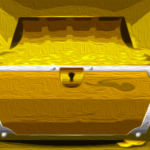
Vanguard, a prominent financial institution, has provided insights into its decision to exclude spot bitcoin exchange-traded funds (ETFs) from its trading platform. An executive from Vanguard emphasized that cryptocurrency is considered an "immature asset class" with no historical track record, intrinsic economic value, or cash flow, and has the potential to disrupt investment portfolios.
Vanguard's Explanation for Disallowing Spot Bitcoin ETFs
Vanguard recently published a blog post titled "No Bitcoin ETFs at Vanguard? Here's why" on January 24th, detailing the company's stance on cryptocurrency and its refusal to enable clients to trade the newly approved spot bitcoin ETFs. As of December 31, 2023, Vanguard serves over 50 million investors worldwide and manages approximately $8 trillion in assets globally.
Since the U.S. Securities and Exchange Commission (SEC) approved 11 spot bitcoin ETFs earlier this month, Vanguard's decision to prohibit its clients from trading these newly launched products has attracted attention. Additionally, Vanguard has confirmed that it has no intentions of introducing its own spot bitcoin ETFs.
Janel Jackson, Vanguard's Global Head of ETF Capital Markets and Broker and Index Relations, explained in the blog post why the company does not offer spot crypto ETFs on its brokerage platform. She stated, "Vanguard views crypto as more of a speculative asset rather than an investment. This perception is the foundation of our decision not to offer crypto products, whether our own or others." She further emphasized:
Although crypto has been classified as a commodity, it remains an immature asset class with no historical track record, intrinsic economic value, cash flow, and has the potential to disrupt investment portfolios.
Jackson noted, "Through equities, investors gain ownership in companies that produce goods or services, some of which pay dividends. Bonds provide a steady stream of interest payments. Commodities represent tangible assets that meet consumption needs, possess inflation-hedging characteristics, and can play a vital role in specific portfolios."
Nevertheless, Jackson expressed Vanguard's interest in blockchain technology, stating, "We are highly interested in blockchain, the underlying technology behind cryptocurrencies. We believe that its application extends beyond crypto and can enhance the efficiency of capital markets. As such, we have actively engaged in research on blockchain technology."
Regarding Vanguard's plans to introduce its own spot crypto ETFs, Jackson stated:
Given the current status of cryptocurrency as an asset class, Vanguard has no intention of launching its own bitcoin ETF or any other crypto-related products.
"When determining which investment products to offer, we consider various factors, including their enduring investment value and alignment with our clients' needs," she clarified. "While the discussion surrounding bitcoin and cryptocurrencies, in general, has gained momentum, we currently believe they do not have a suitable role in long-term portfolios. Vanguard follows a rigorous process for all product launches."
What are your thoughts on Vanguard's explanation regarding spot bitcoin ETFs? Share your opinions in the comments below.
Frequently Asked Questions
Should You Buy Gold?
Gold was considered a safety net for investors during times of economic turmoil in the past. Many people today are moving away from stocks and bonds to look at precious metals, such as gold, as a way to diversify their investments.
The gold price has been in an upward trend for the past few years, but it remains relatively low compared with other commodities like silver or oil.
Some experts think that this could change in the near future. Experts believe that gold prices could skyrocket in the face of another global financial crisis.
They also point out that gold is becoming popular because of its perceived value and potential return.
Consider these things if you are thinking of investing in gold.
- Before you start saving money for retirement, think about whether you really need it. You can save money for retirement even if you don't invest in gold. However, you can still save for retirement without putting your savings into gold.
- Second, make sure you understand what you're getting yourself into before you start buying gold.There are several different types of gold IRA accounts available. Each type offers varying levels and levels of security.
- Remember that gold is not as safe as a bank account. It is possible to lose your gold coins.
You should do your research before buying gold. If you already have gold, make sure you protect it.
What is the tax on gold in an IRA
The fair market price of gold when it is sold determines the tax due on its sale. Gold is not subject to tax when it's purchased. It isn't considered income. If you decide to sell it later, there will be a taxable gain if its price rises.
For loans, gold can be used to collateral. Lenders seek to get the best return when you borrow against your assets. In the case of gold, this usually means selling it. It's not guaranteed that the lender will do it. They may keep it. Or they might decide to resell it themselves. In either case, you risk losing potential profits.
So to avoid losing money, you should only lend against your gold if you plan to use it as collateral. It's better to keep it alone.
What are some of the benefits of a gold IRA
An Individual Retirement Account (IRA) is the best way to put money towards retirement. It will be tax-deferred up until the time you withdraw it. You have complete control over how much you take out each year. There are many types of IRAs. Some are better for those who want to save money for college. Some are better suited for investors who want higher returns. Roth IRAs are a way for individuals to make contributions after the age of 59 1/2, and then pay taxes on any earnings upon retirement. These earnings don't get taxed if they withdraw funds. This account is a good option if you plan to retire early.
An IRA with a gold status is like any other IRA because you can put money into different asset classes. Unlike a regular IRA which requires taxes to be paid on gains as you wait to withdraw them, a IRA with gold allows you to invest in multiple asset classes. For people who would rather invest than spend their money, gold IRA accounts are a good option.
An additional benefit to owning gold through an IRA, is the ease of automatic withdrawals. This means that you don't need to worry about making monthly deposits. To avoid missing a payment, direct debits can be set up.
Finally, the gold investment is among the most reliable. Because it isn't tied to any particular country its value tends be steady. Even during economic turmoil the gold price tends to remain fairly stable. This makes it a great investment option to protect your savings from inflation.
What precious metals do you have that you can invest in for your retirement?
Gold and silver are the best precious metal investments. They're both easy to buy and sell and have been around forever. These are great options to diversify your portfolio.
Gold: Gold is one the oldest forms currency known to man. It is also extremely safe and stable. Because of this, it is considered a great way of preserving wealth during times when there are uncertainties.
Silver: Silver has been a favorite among investors for years. It is an excellent choice for investors who wish to avoid volatility. Unlike gold, silver tends to go up instead of down.
Platinum: A new form of precious metal, platinum is growing in popularity. Like gold and silver, it's very durable and resistant to corrosion. It's however much more costly than any of its counterparts.
Rhodium: Rhodium is used in catalytic converters. It is also used for jewelry making. It's also relatively inexpensive compared to other precious metals.
Palladium: Palladium is similar to platinum, but it's less rare. It's also more affordable. It's a popular choice for investors who want to add precious metals into their portfolios.
How to Open a Precious Metal IRA?
First, decide if an Individual Retirement Account is right for you. Open the account by filling out Form 8606. Then you must fill out Form 5204 to determine what type of IRA you are eligible for. This form should be completed within 60 days after opening the account. Once this has been completed, you can begin investing. You can also contribute directly to your paycheck via payroll deduction.
If you opt for a Roth IRA, you must complete Form 8903. Otherwise, the process will be identical to an ordinary IRA.
To qualify for a precious Metals IRA, there are specific requirements. The IRS states that you must be at least 18 and have earned income. Your annual earnings cannot exceed $110,000 ($220,000 if you are married and file jointly) for any tax year. You must also contribute regularly. These rules apply to contributions made directly or through employer sponsorship.
You can use a precious-metals IRA to purchase gold, silver and palladium. You can only purchase bullion in physical form. This means that you will not be allowed to trade shares or bonds.
You can also use your precious metallics IRA to invest in companies that deal with precious metals. This option is offered by some IRA providers.
There are two major drawbacks to investing via an IRA in precious metals. First, they don't have the same liquidity as stocks or bonds. This makes it harder to sell them when needed. They don't yield dividends like bonds and stocks. So, you'll lose money over time rather than gain it.
Is it a good idea to open a Precious Metal IRA
You should be aware that precious metals cannot be covered by insurance. You cannot recover any money you have invested. This includes all investments that are lost to theft, fire, flood, or other causes.
Protect yourself against this type of loss by investing in physical gold or silver coins. These items can be lost because they have real value and have been around for thousands years. If you were to sell them today, you would likely receive more than what you paid for them when they were first minted.
You should choose a reputable firm that offers competitive rates. Consider using a third-party custody company to keep your assets safe and allow you to access them at any time.
Remember that you will not see any returns unless you are retired if you open an Account. Keep your eyes open for the future.
Which precious metal is best to invest in?
The answer to this question depends on how much risk you are willing to take and what type of return you want. Gold has been traditionally considered a haven investment, but it's not always the most profitable choice. For example, if your goal is to make quick money, gold may not suit you. Silver is a better investment if you have patience and the time to do it.
Gold is the best investment if you aren't looking to get rich quick. However, silver might be a better option if you're looking for an investment that provides steady returns over long periods.
Statistics
- The price of gold jumped 131 percent from late 2007 to September 2011, when it hit a high of $1,921 an ounce, according to the World Gold Council. (aarp.org)
- Contribution limits$6,000 (49 and under) $7,000 (50 and up)$6,000 (49 and under) $7,000 (50 and up)$58,000 or 25% of your annual compensation (whichever is smaller) (lendedu.com)
- This is a 15% margin that has shown no stable direction of growth but fluctuates seemingly at random. (smartasset.com)
- Gold is considered a collectible, and profits from a sale are taxed at a maximum rate of 28 percent. (aarp.org)
- (Basically, if your GDP grows by 2%, you need miners to dig 2% more gold out of the ground every year to keep prices steady.) (smartasset.com)

















